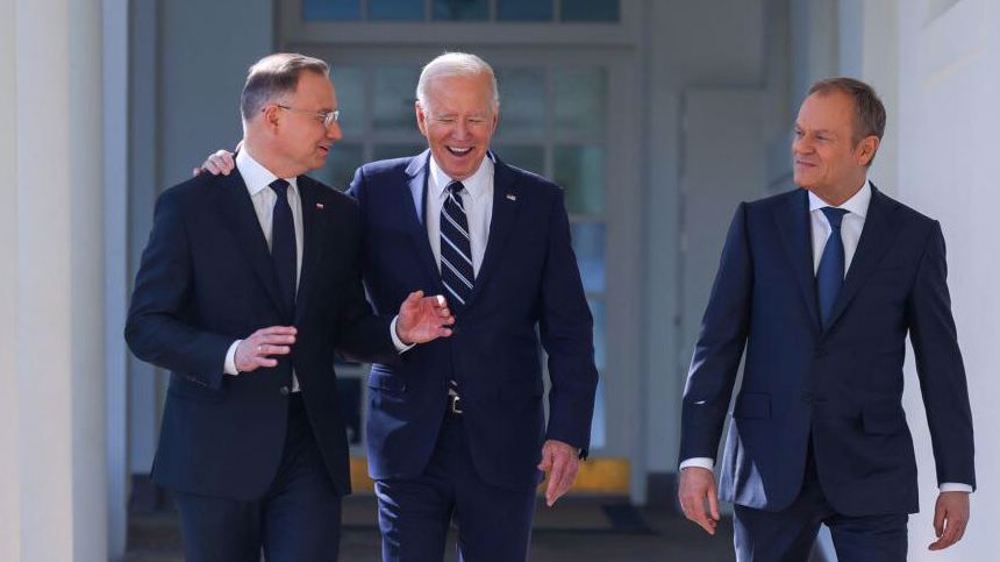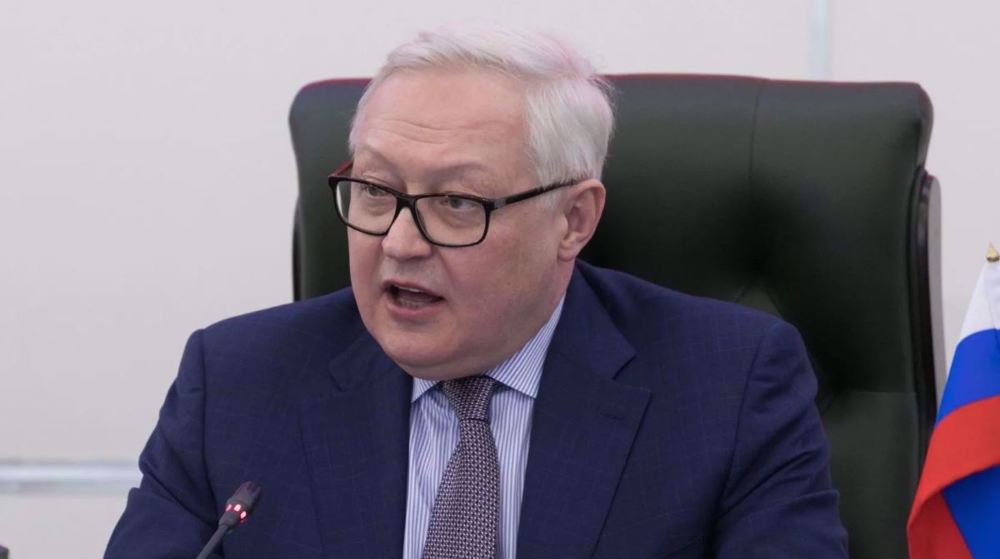CIA chief warns Trump: Scrapping Iran deal ‘disastrous’
CIA Director John Brennan says it would be “the height of folly” for US President-elect Donald Trump to sabotage the nuclear agreement with Iran reached under the Obama administration.
"I think it would be disastrous. It really would," Brennan said in an interview with the BBC published on its website on Wednesday.
Republican Trump, who defeated his Democratic rival Hillary Clinton in the November 8 election, has repeatedly threatened to scrap the deal reached between Iran and the P5+1 – the US, Britain, France, Russia, China and Germany - in July last year.
The agreement, known as the Joint Comprehensive Plan of Action (JCPOA), angered many in the United States, especially congressional Republicans who slammed President Barack Obama for reaching a deal that they claimed only benefited the Islamic Republic.

"First of all for one administration to tear up an agreement that a previous administration made would be unprecedented," said Brennan, who will step down in January after four years leading the CIA.
"I think it would be the height of folly if the next administration were to tear up that agreement," he added.

As a candidate, Trump threatened to “rip up” the Iran nuclear agreement on day one if elected president, calling it “stupid,” a “lopsided disgrace” and the “worst deal ever negotiated."
Despite Trump’s tough rhetoric on the campaign trail, there has been no real indication since the election that the incoming Republican president would follow through with the threat to undermine the accord.
One of Trump’s top aides said earlier this month that the president-elect would likely take the agreement but try to renegotiate its terms.
“Ripping up is maybe a too strong of word,” Trump's adviser Walid Phares told BBC radio on November 10. “He will take the agreement, review it, send it to Congress, demand from the Iranians to restore few issues or change few issues, and there will be a discussion,” Phares added.
However, experts argue that renegotiating a deal that took more than a decade of stop-and-go diplomacy and almost two full years of negotiation to complete would prove difficult. Besides, none of the other countries that negotiated the accord has expressed any interest in opening up the talks.
“The agreement is valid only as long as all parties uphold it,” State Department spokesman Mark Toner acknowledged days after the election.
Obama also said that after the JCPOA was reached, there was an argument that Iran might not comply with the agreement, but that it had been proven otherwise.
"The main argument against it was that Iran wouldn’t abide by the deal, (but) we now have over a year of evidence that they have abided by the deal," Obama said at a White House news conference earlier this month.

"My suspicion is that when the president-elect comes in and is consulting with his fellow Republicans on the Hill, that they will look at the facts," he said. "To unravel a deal that’s working and preventing Iran from pursuing a nuclear weapon would be hard to explain."
Trump could indeed send the JCPOA to Congress, where the Republican majority is vehemently opposed to the deal.
Congressional Republicans are already considering a slew of possible actions such as targeting Iran's Islamic Revolution Guards Corps (IRGC) and the country’s missile program.
The US Senate will vote this week on legislation to renew sanctions on Iran for 10 years, Majority Leader Mitch McConnell said on Tuesday.
The Iran Sanctions Act, passed in 1996 and set to expire at the end of 2016, was overwhelmingly approved in the House of Representatives last month. If the bill is passed in the Senate as expected, it would be sent to President Obama, who is expected to sign it into law.
White House officials have indicated that the reinstatement of sanctions was not needed, but said sanctions are technically allowed under the nuclear accord.
Iran has warned that the renewal of sanctions will be a violation of commitments under the JCPOA, and has threatened reprisal if the US extends the longstanding act.
Russia's role in Syria conflict
In his interview, Brennan also commented on Russia’s role in Syria, saying Moscow continued to hold the key to Syria’s future, while the US lost ground in the war-torn country after it allegedly stopped supporting the so-called moderate militants fighting the government of President Bashar al-Assad.
"I do not have confidence that the Russians are going to relent until they are able to achieve as much tactical battlefield successes as possible," the CIA chief said.
He also warned Trump, who has frequently expressed interest in working with Russia, that he should be “wary of” Moscow.
"I think President Trump and the new administration need to be wary of Russian promises," he stated.

According to a Russian deputy foreign minister, Moscow has started communicating with Trump's team over the deadly conflict gripping Syria.
On November 17, Mikhail Bogdanov expressed hope that the new US government will adopt a new approach to help resolve the crisis.
Syria has been hit by deadly foreign-backed militancy since March 2011. Russia and the US have been supporting opposing sides in the conflict.
VIDEO | Islamabad rejects US report on rights practices in Pakistan
VIDEO | Yemenis endorse naval forces' attacks on Israeli-linked ships
VIDEO | New national transport strike hits Italy
US to pull out troops from Chad in second African state withdrawal
Yemeni armed forces strike British oil tanker in Red Sea
VIDEO | Genocide in Gaza
VIDEO | Press TV's news headlines
VIDEO | American, Israeli rabbis call for ceasefire during protest near Gaza















 This makes it easy to access the Press TV website
This makes it easy to access the Press TV website